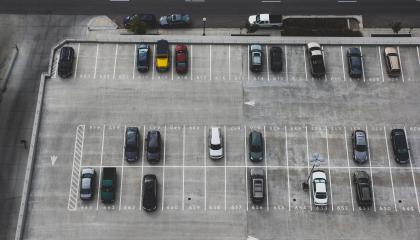One result of population growth within cities is something called urban expansion, which is the unrestricted growth of housing, businesses, and roads without any specific planning. Urban expansion influences cities’ social and environmental dynamics, causing a number of disadvantages, including longer commutes, higher transportation costs, pollution, and loss of countryside.
Tactile paving, now known as detectable warning dome tiles, was first developed by Seiichi Miyake in 1965 to help people with vision impairments navigate public spaces. Major cities and transportation networks throughout the world use detectable warning dome tiles.
Creating a bike lane city infrastructure requires the coordination of the appropriate government agencies, resources, and construction logistics. It’s a time-intensive ordeal; however, the benefits are many for cities that are suffering from intense air pollution, overcrowding, and congestion. Bike lanes alter the city infrastructure and also improve the health of inhabitants.
Portland State University noted that when five major US cities incorporated protected bike lanes into their city infrastructure, bike ridership increased 170 percent.
Over the last few years, more and more urban designers and architects are incorporating radius shapes as part of their exterior designs. These new shapes bring modern life to an intersection rather than the classic rectangular ramp pattern we are all accustomed to. These specific radius tiles are made-to-order and manufactured with the same nano-engineered polymer concrete material as the standard TekWay ADA Dome Tiles to ensure long lasting durability and functionality.
To make the world more accessible, the ADA established a certain list of reasonable accommodation that businesses, organizations, and companies can do to better serve individuals with disabilities. Reasonable accommodation opens the world to everyone.
Legally, a reasonable accommodation refers to an adaptation to a job, such as day-to-day job tasks or modified work environment, that allows a qualified individual with a disability to work. An accommodation is considered “reasonable” if it doesn’t cause an unreasonable amount of work or money to make happen.
Pagination
- Previous page
- Page 2
Connect with us
We pride ourselves on our customer service, and we'd love to hear from you! Sign up for our newsletter to keep up with industry updates and trends, as well as any new product releases.







